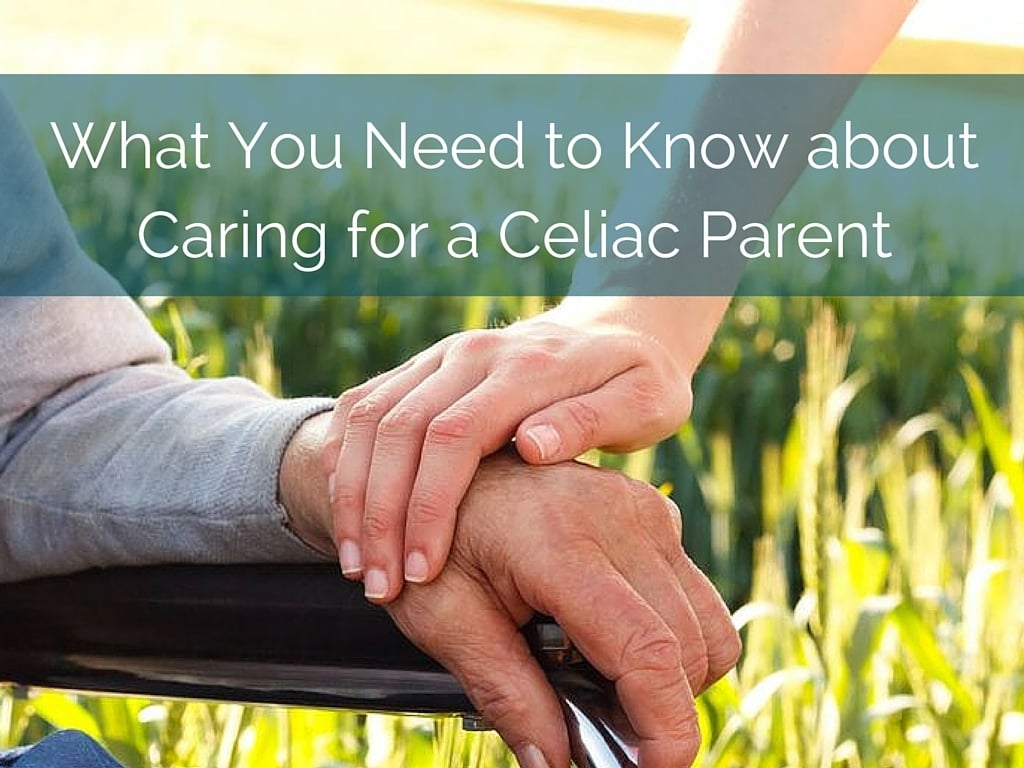
Celiac disease is a health condition that can afflict people who are already genetically predisposed and have issues consuming foods that contain gluten found in grains such as rye, wheat, and barley. It is an autoimmune disorder that leads to small intestine damage and affects around 1 in 100 people around the world, according to the Celiac Disease Foundation. People who are over 60 years old make up as much as 33 percent of all people who are diagnosed with this condition, reports the National Institutes of Health.
What Caregivers Need to Know
If you are caring for a parent with celiac disease, understand that it can be difficult, both physically and psychologically, for your loved one to maintain a strict gluten-free diet, especially if they have been diagnosed only recently. Celiac seniors often find that they must drastically change their daily routines because of their disease — and this includes what types of food they are now able to buy, where they can eat out, and how they will cope with situations where food is involved.
But no matter how difficult it may be to follow a gluten-free diet, the alternative can be much worse: If an elderly parent with celiac disease consumes food that contains gluten, it can trigger an immune system response that can damage the small intestine.
The small intestine is lined with a hair-like villi that can be destroyed through this immune system response. If your loved one is elderly and they lose these villi, they will be unable to get essential vitamins and minerals from the food they eat. Subsequent malnutrition can lead to various health problems and pose severe risks to their health, including neuropathy (nerve damage) and osteoporosis (decreased bone density from thinning bones) if the condition is let unmanaged.
Symptoms of Celiac Disease
Celiac disease is different for everyone, but there are a number of different symptoms that celiacs commonly experience after consuming gluten:
- abdominal cramping
- pain in the abdomen
- diarrhea
- irritability
- anemia
- muscle cramping
- joint pain
- fatigue
Dietary Guidelines
To manage symptoms, and prevent long term damage, ensure that your mom or dad sticks to a strict gluten-free diet, which means they are not allowed to consume any food or drinks that contain gluten; this includes medication. They should avoid rye, barley, and wheat altogether, as well as foods containing white, wheat, or all-purpose flour.
Foods that are safe to consume:
- Cereals not containing barley malt or wheat
- Beans
- Corn
- Milk-based items
- Potatoes
- Poultry, meat and fish (not breaded and without regular gravy, which is typically made with wheat-based thicken agents)
- Fruits and Vegetables
- Rice
- Gluten-free oats
How You Can Help
Sticking to a gluten-free diet can be difficult for an older adult—especially one who has received a diagnosis later in life, but you can help in two major ways:
-
Always Check for Gluten Content
If you help your parent with grocery shopping, be sure to read all food labels and teach your loved one to do the same. Make sure they have glasses or whatever else they need to be able to read food labels accurately. Ask your parent’s doctor for a list of ingredients that you and your loved one need to look out for.
-
Be Emotionally Supportive
When your mom or dad gives up gluten, he or she might begin to feel a little anxious which can cause shortness of breath, heart palpitations, or other symptoms that they will have to learn to cope with. Be supportive and patient.
Adjusting to a gluten-free diet is different for everyone. Your mom or dad will handle it in their own way. As the caregiver of a senior parent, the best thing you can do is to stay positive, be supportive, educate them, and assure them and yourself that it will get better.












